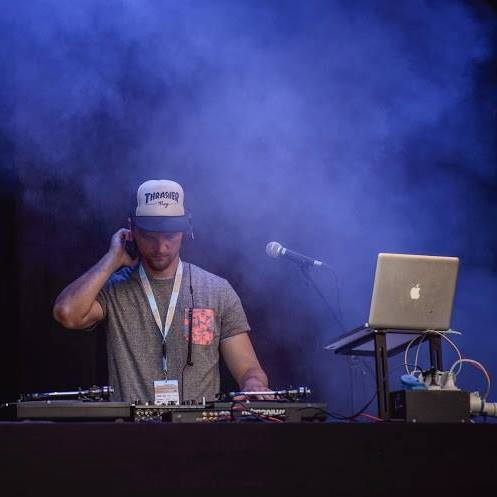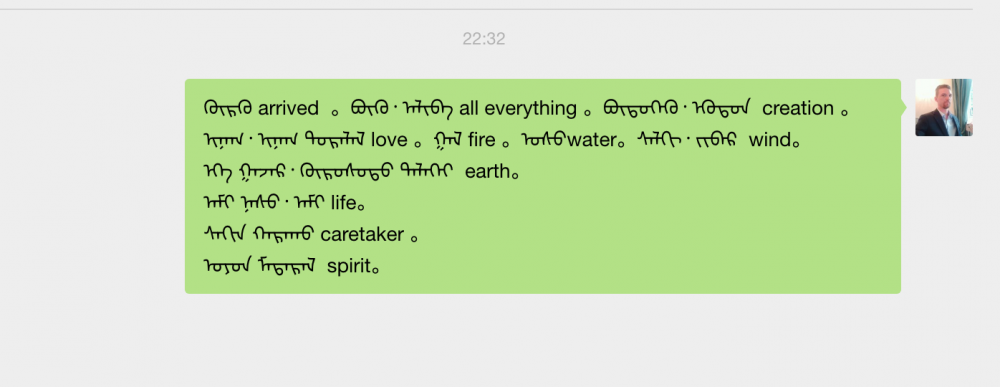-
Posts
2185 -
Joined
-
Last visited
-
Days Won
46
Posts posted by linguaholic
-
-
2 hours ago, chrismartin12 said:
hey guys
i wanted to learn some foreign language and i am from India. please suggest me which is the best and more demand for the language.?
In order to give you some advice on this, please tell us more about what your goals/plans are. It is impossible to give you any advice, if we do not know what you would like to achieve/do with that new language.
Best,
L
-
1 hour ago, Barry said:
I've been using FluentU and one of the videos included a line in a song - "Im Dezember man Sterne sehen kann." https://youtu.be/v5Nzm6TvF_Y?t=2m12s
Is this word order correct? If so, what's going on with it? I thought a verb needs to come as the second 'group' in the sentence then the rest of the verbs stack at the end of the sentence. "Im Dezember man Sterne" seems too big to be a single concept since it contains a time and two nouns.
Hey Barry. Welcome to Linguaholic.com!
You are right, it is wrong. It should say "Im Dezember kann man Sterne sehen" or something like "Im Dezember ist es möglich, Sterne am Himmel zu sehen."
But then again, it is a song. Often in songs, word order gets a little bit mixed up. But it definitely does not sound nice like that. And after all, it is wrong. That is true.
(I can't listen to the song right now. I will listen to it later on. Maybe the context gives this particular sentence a little bit more sense. I highly doubt it, though. As I can't imagine a context where this actual sentence structure would truly make sense)
-
On 8/24/2018 at 11:42 PM, Alina K said:
I think Google have many more resources to develop this kind of product. And they might not even feel the concurrence from the DeepL side... Honestly, first time I've heard about DeepL was just a week ago - from you. And till DeepL develops translation from/to other languages, it won't be in the same row with GT, or Microsoft, or Yandex Translator. DeepL is the first in its own niche, but GT is still no.1 "popular" translator. So they may just develop in parallel. In any case, it will be interesting to see

I gotta disagree, here
 Google most definitely feels pressure from DeepL. In fact, Google Translate has been in this game for ages, yet DeepL outperforms GT by FAR. Moreover, DeepL apparently has been invented by people of linguee.com (another amazing resource). And linguee.com has been a major platform for translators for a long time already.
Google most definitely feels pressure from DeepL. In fact, Google Translate has been in this game for ages, yet DeepL outperforms GT by FAR. Moreover, DeepL apparently has been invented by people of linguee.com (another amazing resource). And linguee.com has been a major platform for translators for a long time already.
But yes, more language options is definitely an important factor and DeepL will need to work on that. Let's see where it goes. The word about DeepL spreads fast, though. Translate a text twice, once with DeepL and once with Google Translate. And tell me which translation is more accurate. I am sure GT will be able to close the gap eventually, but at the moment, DeepL is just really outperforming GT.
-
-
4 hours ago, Alina K said:
That's exactly what I meant. German, Dutch and English are basically same language branch. French, Spanish and Italian are pretty close to them as well (at least to English, in terms of vocabulary). Polish stands out, of course... And I honestly don't know what made the DeepL developers think that Polish is easier (?) or more popular (?) than Russian, for example. Latin script?
In any case, just imagine how much data they will have to process and store to launch the explosive combo "English-Chinese". Or, worse, "Russian-Chinese".
However, the interesting thing is that the approach that is used by DeepL is less depending on mere data than it is the case with Google Translate. Google Translate has always been based on a statistical approach. The concept for GT is pretty simple: The more data you have, the better the translations will be. But as DeepL is not based on a statistical approach, there are many other factors that come into play. And this also makes it less dependent on actual corpus data (translations available in a specific language pair).
I am wondering if GT will still go the "Statistical Approach Route" in the future? Most certainly they are already gearing it towards the approach that is used in Deep L. Maybe they already do that, I don't know. Haven't used GT for a while. Why should I? Have been more than satisfied with DeepL these days :=)
-
18 hours ago, antiimon said:
Hi!
I'm currently working on a novel and need some help translating a couple of words into mongolian. I have tried using some translation tools online and some dictionaries, but since the language is so far beyond my knowledge I want to ask someone, preferably a native, for a second opinion. Don't want to mess it up, you know.
The words I'm looking for is:
- arrival
- creation
- love story/story of love
- fire
- water
- wind
- earth
- all/everything
- life
- caretaker
- spirit
Is there anyone who can help out?
My friend has indeed already translated the terms into Mongolian. I will upload the translations as soon as I am home. Hope they will be useful for you.
Best,
L
-
23 hours ago, Alina K said:
Well, speech recognition systems work fairly well for the "standard" varieties of languages. I guess it will take some time to teach AI to recognize deviations from these forms, such as dialects or foreign accents. Here's just a video on the topic:

As for me, I still try to have some interesting conversations with my Google assistant in French, but the only progress we've made so far is setting an alarm. So, yeah, there's still a long way to go.
And I have indeed never heard of DeepL before. But I checked it with songs lyrics and it seems to translate them very well...at least in the comparison with the usual Google Translate results
 I can't wait when they add more languages!
I can't wait when they add more languages!
Thanks, Alina. hehe. I already came across this video earlier on. It is really funny.
Yes, I am also waiting for DeepL to add more languages. That is gonna be awesome. Really curious how well DeepL will be able to master translations from let's say Chinese into English. That's a big deal. Much more difficult than other combinations like German-English and so on.
-
34 minutes ago, Alina K said:
I agree with you. A language should be learned for a reason and not because it is easy. It makes sense to learn English because it's a global language and a modern lingua franca. But what's a point to learn something you're not going to use (even if it's easy), right?
However, I wouldn't say that English and Spanish are the easiest ones. There's a post on exactly this topic that weighs quite a few interesting factors determining what would be the easiest language for you to learn: http://linguapath.com/easiest-language-to-learn/.
Plus, I guess it all depends on your point of reference. If you grew up in China and learned Mandarin as a child, Spanish and English would give you a hell of hard time. However, if you're from Europe, there's a high chance that the structure of your mother tongue is very similar to these two languages. In this case, you can consider them easy for sure.
Agreed. There just is no such thing as "the easiest language to learn". It really all depends on your point of reference. Same with constructed languages. There again, those constructed languages are based on linguistic concepts that already exist. So they are basically based on other existing languages. And therefore, the "problem" with the point of reference stays the same.
-
13 hours ago, antiimon said:
Hi!
I'm currently working on a novel and need some help translating a couple of words into mongolian. I have tried using some translation tools online and some dictionaries, but since the language is so far beyond my knowledge I want to ask someone, preferably a native, for a second opinion. Don't want to mess it up, you know.
The words I'm looking for is:
- arrival
- creation
- love story/story of love
- fire
- water
- wind
- earth
- all/everything
- life
- caretaker
- spirit
Is there anyone who can help out?
hey there. I have a Mongolian friend. I will ask her if she can be of any help. However, she does not speak English. So first, I would need to tell her in Chinese about it. But I will let you know how it goes:=)
Best,
L
-
On 8/16/2018 at 11:07 PM, MattCohan said:
Well, Sumerian is the oldest recorded civilisation that we know of, and that being said, the language itself it fascinating. I would like to know a lot more about how detailed the language was and how it was used
How much do you know about this?
Best
Matt
Hey Matt. I might be of some help with good resources to tackle Sumerian but I never studied it myself. In fact, when I studied Linguistics at University, Sumerian has always been a topic of interest. So that is where I mainly know it from.
-
4 minutes ago, Alina K said:
Hey Nargis,
I think Pimsleur courses may be very helpful in this case but it's a kind of a "costly" solution. Plus, many language learning apps like Memrise or Rosetta Stone now have a speech recognition system that compares your prononciation with the prononciation of a native speaker. If you fail to produce anything similar, you have to say it again, and again, and again...until it matches. Though, it can be very frustrating

You can also find an English speaking blogger or a public figure whose style and prononciation you like. It can be someone like Tim Ferriss or David Allen who give lots of conferences and make lots of podcasts/audiobooks/webinars. And then just listen a lot of this person. Quite often you'll unconsciously adjust your speech to imitate his/her style. And you can learn a lot of new vocabulary this way.
Hey Alina
I am curious. What is your opinion on those speech recognition systems? I am not very fond of them. I think there is still a long way to got some more advanced speech recognition systems. On the other hand, when it comes to translations, huge progress has been made recently. The translation software DeepL has been a major breakthrough in translation for sure. I use it at work every day and when translating let's say English to German or German to English it is incredibly good and on point. I couldn't believe my eyes when I first started to use this software. So amazing.
In case you haven't heard about it, you can check it out here DeepL
Best,
L
-
awesome Matt! I am curious. What is your fascination with Sumerian specifically? Would love to hear more about that.
Best,
L
-
2 hours ago, Alina K said:
For sure, speaking any foreign language is a huge advantage, whether it's English, or Mandarin, or Haitian Creole. Otherwise anglophones could just relax and wait when the rest of the world learn English

I think the "value" of a language always depends on specific needs of an individual. If I'm planning to study in Athens, I better learn some Greek. If I'm packing for pilgrimage to Tibet, I would rather speak Tibetan.
English is the most valuable for the majority of people not because it is better in any way, but because of its status of international language. So you're right, if one day the situation changes, it will make sense to learn another lingua franca.
P.S. Thanks for your warm welcome! It's always great to join like-minded community

Completely agree with you, Alina.

-
19 hours ago, Alina K said:
English is a lingua franca of XXI century. And in my opinion, it should be the primary competence of every single millennial to speak it.
If you don't speak English in our time you're handicapped, same like if you never learned to use a computer and Internet. It's not deadly, you can survive without it for sure, but a huge chunk of good stuff will necessary get past you.
Just compare how many awesome books there are in English that are not translated (and will never be) to other languages. And I'm not talking about fiction; I'm talking about practical books on fastly developing subjects: marketing, business, investment, programming and SEO, personal development, skill acquisition - I can continue forever.
English opens you doors to the whole world (unlike Chinese, by the way). There is not much difference between the total number of speakers of these two languages: it's around 1,1 billions both (Ethnologue, 2017), but there's a difference in the quality of these speakers. With Chinese you can connect to a single nation solely. With English - to everyone who managed to learned it; and I'm sorry but it's around 750 millions of L2 speakers from all around the globe!
If you don't plan to travel, it's not gonna touch you anyway, so you may not speak English very well. But you should have at least reading competence. 100%

Hey Alina
I do agree with most of what you said. However, Chinese is pretty useful too. and it is a fascinating language, after all. But English does make more sense from a "lingua franca" point of view. At least for now. There is no doubt about that.
Oh and by the way. Thanks so much for joining linguaholic.com. It is great to have you here!
Best,
L
-
16 hours ago, Carlos Silva said:
Hello Can I learn English on Linguaholic? How Can I do for speak or chat whith other peoples?
Dear Carlos, welcome to Linguaholic
Just open some threads and ask some interesting questions, for instance. Moreover, you can visit our Language Exchange Corner
Just leave a message there and tell everybody what you are looking for exactly. For instance, you could say that you are looking for a native English speaker to chat with or something like that. I am sure you get the idea.
Best wishes from Beijing,
L
-
und ja was Übersetzungen anbelangt, da finde ich auch, dass maschinelle Übersetzung leider noch nicht so wahnsinning weit forgeschritten ist...jedenfalls nicht bei der Übersetzung von Chinesisch - Englisch oder Chinesisch/Deutsch, etc. ALLERDINGS muss man sagen, dass es nun mit Deep L ein unglaublich gutes Übersetzungstool gibt für einfachere Sprachkombos wie z. B. Englisch-Deutsch (und andere germanische oder romanische Sprachen). Falls sie deepL noch nicht kennen, sollten Sie das unbedingt mal ausprobieren. Ist fantastisch.
-
31 minutes ago, PCVH said:
Interesting, by the way, how the characters for Mt. Fuji can be split up to insert 'to climb':) Fascinating language, I suspect!
Thanks again!
Nun ja, ich glaube, dass es hier so ist, dass halt zuerst einfach Fuji steht (also ohne Berg = 山) und dann so etwas wie Bergbesteigung (登山)....Ich spreche aber eigentlich nur Chinesisch..darum kann es sein, dass meine Interpretation nicht zu 100 Prozent stimmt. mehr oder weniger müsste das aber ungefähr hinhauen :=)
Beste Grüße aus Peking
Lingua
-
Hi PCVH
The first part means "The climb to Mount Fuji", whereas 富士山 means Mt. Fuji and 登 (the third character) means "climb".
The second part 六根清净 is a Buddhist term and means "the six roots of sensations are pure and clean" --> free from human desires and passions.
六根 = six roots
清净 = pure and clean
-
8 hours ago, Omar said:
Hola,,
Buenos dias ,,
Me llamo Omar. I am from Saudi Arabia. Speak only Arabic and still learning English. I like to play board games like Chess and iGo. I like swimming too. Also I like travelling and exploring the world.
Last week I went to Prague and I met three awesome friends from Poland. One of them was speaking four languages and he was communicating easily with everyone. That was so cool. So I decided to learn Spanish.
Two days ago I brought my note and pen. I started learning from different youtubers. I learned around 30 words and sentences. But it was not fun at all. I decided to look for community to learn with them and I found this forum. Yes,, NOW I AM EXCITED..
Gracias,,Hey Omar. So cool to have you onboard here at linguaholic.com
If you have any questions about the forum, please let me know!
See you in the threads!
-
3 hours ago, Xinsolem said:
Hello everybody! My name's Alba and I'm new here. I am a Spanish girl who's currently living in Germany. I study a degree in Psychology and spend my free time trying to improve my English and my German, so as watching tons of YouTube videos. Among my interests you can find vegetarianism, zero waste, watching Spanish bad comedies, thrift shopping and indie-pop-techno music. I'm the only one of my friends who loves learning languages so I am super happy to be part of a language learning community!
See you around!
 Un besazo
Un besazo 
Warm welcome, Xinsolem!
So, how is your German, then? :=)
If you have any questions about linguaholic.com, please let me know.Best,
L
-
On 7/28/2018 at 3:25 AM, DSM said:
Hi, everyone! My name is Emma-Louise and I'm a wannabe linguist from England. I've been interested in language and how it connects to everything and everyone since I was tiny, but I've only really started exploring linguistics and the communities surrounding it more intensively for the last couple of years.
I wasn't fortunate enough to study at University, so instead I teach myself and I share my findings over on my YouTube channel, where I will in no way complain should you choose to venture in that direction. My biggest interest is words, the importance specific ones hold in history and society and pretending I'm better at Swedish than I actually am.
Speaking of what I'm actually studying; Swedish & French for the time being, although I have dabbled in the odd bit of Greek, German, Turkish, Mandarin, Dutch, Spanish, Catalan, Esperanto, Russian & Japanese.
Outside of linguistics, I'm very interested in travel, international borders, staring at maps, cats of all shapes and sizes, fashion design, museums, photography ... and social media. I'm 25, Jennifer, we can't all be cultured and perfect like you.
I've attached a photo of my brilliant face so you know what I look like, in case I write something stupid in here later on and you need to laugh at me.
Hi Emma-Louise
I have just watched one of your videos. Good job! Keep up the good work. And thanks for joining linguaholic.com.
Best,
L
-
7 hours ago, Monox D. I-Fly said:
All along this time, I thought "run" was already winning with its 151 meanings...
151 meanings....not too bad either :=)
-
5 hours ago, bzylich said:
Hi everyone!
I started studying Spanish in middle/high school and recently had the opportunity to continue learning Spanish in college, studying abroad in Paraguay and Spain. I really enjoy learning languages, although sometimes find it hard to make time for language learning while working and studying.
I am currently pursuing a masters in computer science, and I am interested in pursuing research that combines computer science and language learning. Of particular interest to me is the potential for chatbots to be used by language learners as a way to improve conversational skills without the added pressure of talking with a native speaker. Do any of you have experience using chatbots for this purpose (I know at least Duolingo/Mondly have this feature)? If so, what chatbots did you use, and what did you like/dislike about them? If not, do you think this would be helpful, and what would your expectations be with respect to the chatbot's capabilities?
Thanks,
bzylich
Welcome to Linguaholic.com!
Chatbots is an interesting topic. I used mondly for some time and they also do have chatbots. The functions and capabilites of those chatbots there are very limited though...so I didn't quite enjoy it that much.
Best,
L
-
I have a good Taiwanese friend. I will ask her as soon as possible. Maybe she can help on this.






Word order query - "Im Dezember man Sterne sehen kann."
in German Grammar
Posted
Well in my opinion, the word "ja" here just adds to the intensity of the actual expression. The word "ja" here does not have a semantic value. That is how I see it here. If you would just say "Man kan nie wissen", the meaning would exactly the same. At least 99% the same :=)